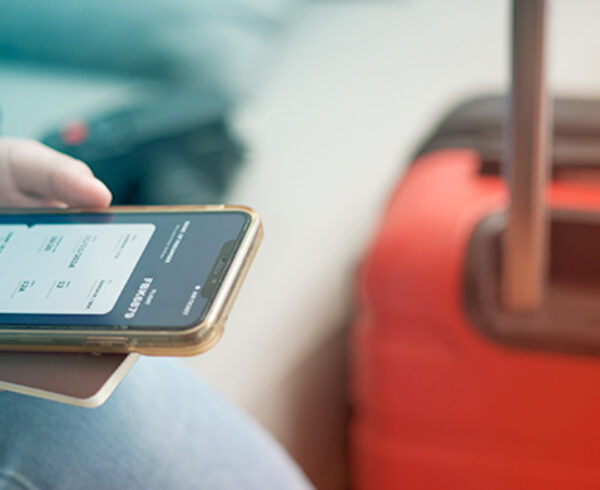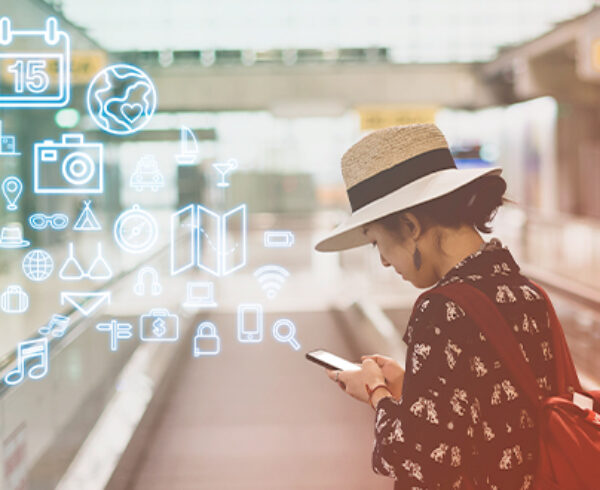Overbooking is universal in the aviation industry. It happens every single day on flights around the world, and yet we rarely talk about it or your passenger rights.
But a 2017 incident aboard a United Airlines flight before departing Chicago for Louisville has thrust overbooking into the news and no doubt inspired airlines to reexamine their policies on how to handle such situations.
Do you know your passenger rights?
As a frequent Traveler, it’s important that you know how to avoid getting bumped, as well as what to do if you’re caught up in an overbooking situation.

Why Do Airlines Overbook?
Airlines have learned through the years that all scheduled passengers don’t always make it to their flights. People cancel at the last minute. People arrive too late to board. And people are sometimes stuck on connecting flights that aren’t going to make it on time because of weather or mechanical issues.
Each empty seat represents revenue lost. So airlines have 2 options:
1) raise fares across the board to make up for empty seats, or
2) overbook flights so that those empty seats can be filled.
Airlines (with few exceptions) choose the latter option — overbooking. And it nearly always works to perfection. Of the 660 million passengers who flew on the largest U.S.-based carriers in 2016, only about 40,000 were involuntarily denied boarding. Another 434,000 passengers voluntarily gave up their seats in overbooking situations.
The practice of bumping passengers has gotten worse in recent years, though, perhaps due in part to the grounding of Boeing’s 737 MAX 8. In 2019’s first quarter, 130,000 passengers were bumped from flights in the United States — 6,175 of them involuntarily. That represented a 36% increase over the same period in 2018.
Whether bumping gets better or worse, it’s important to know how it works — as well as your passenger rights.

Voluntary vs. Involuntary Denial of Boarding
There are two ways you can get bumped from a flight — voluntarily and involuntarily. As you see in the stats above, it’s far more common for passengers to give up their seats voluntarily. Why would they do this? Because airlines offer inducements like cash, travel vouchers, upgrades and more.
Each airline takes a different approach to voluntary denial of boarding. Delta Air Lines has even raised its maximum compensation to $9,950 and United offers a maximum of $10,000.
The U.S. Department of Transportation forces airlines to seek volunteers before going the involuntary route. That said, compensation is purely at the discretion of the airline when seeking volunteers. It’s only when an airline involuntarily denies boarding that passenger rights enter in — and it’s important that you know those rights.
Know Your Passenger Rights
When an airline denies boarding involuntarily, you are almost always entitled to compensation. The amount of compensation depends on how long you’re delayed and where you’re going. Here’s a look at the current rules.
- If delayed less than 1 hour: Involuntarily denied passengers are not entitled to compensation. (This sounds unfair, but it’s rare that an airline can accommodate you so quickly.)
- If delayed 1 to 2 hours (or 1 to 4 hours internationally): Involuntarily denied passengers are entitled to 200% of the one-way fare with a maximum of $675.
- If delayed 2 hours or more (or 4 hours or more internationally): Involuntarily denied passengers are entitled to 400% of the one-way fare with a maximum of $1,350.
If you are bumped, it’s essential that you ask for your just compensation. The airline isn’t required to tell you about your rights, and they may try to give you what they had been offering volunteers — which is often less than what you’re entitled to.
You might also be interested in reading: The Worlds Safest Airlines
What Leading Carriers Do
As mentioned, each airline has a different policy on how they seek volunteers and how they select passengers for involuntary denials. Your best bet for making sure you get to stay on your flight is to check in early — many airlines start bumping the last passengers to check in.
Here’s a look at what major U.S.-based carriers include in their policies
Alaska Airlines
- What They Offer: Alaska Airlines seeks volunteers by offering “a certificate for a discount on future travel.”
- Who They Deny: Alaska Airlines starts involuntary denials with the “last customer who checked in on time.”
Allegiant Air
- What They Offer: Allegiant Air is vague in its policy, offering volunteers simply “a payment of the airline’s choosing.”
- Who They Deny: Allegiant is also vague in how it begins the involuntary process, stating that it will deny “persons in accordance with its particular boarding priority.”
American Airlines
- What They Offer: American Airlines offers volunteers “compensation and a confirmed seat on a later flight.”
- Who They Deny: American also typically starts involuntary denials with the last passengers to check in, but it also considers “factors such as severe hardships, fare paid, and status in the AAdvantage program.”
NOTE: As of 2019, American Airlines was one of the worst for bumping passengers. Between July and September of that year, it bumped more passengers than all other airlines combined.
Delta Air Lines
- What They Offer: Delta now offers up to $9,950 via the Delta Gift Card Program. The gift cards never expire and are fully transferable.
- Who They Deny: Delta’s policy does not directly indicate how it chooses involuntary denials.
Frontier Airlines
- What They Offer: Frontier Airlines offers volunteers “alternative travel accommodations and an electronic credit usable toward future transportation.”
- Who They Deny: Frontier also bumps based on when passengers show up, stating that generally that the “last customer to check-in would be subject to removal.”
JetBlue
- What They Offer: JetBlue is the only major airline whose policy states that it does not overbook flights.
- Who They Deny: If weather or another issue requires the involuntary bumping of passengers, JetBlue offers “a payment of the airline’s choosing,” and they deny passengers based on boarding priority.
Southwest Airlines
- What They Offer: Southwest no longer overbooks its flights.
- Who They Deny: Southwest does not outline who it will deny in case a flight is full due to “operational instances,” though it does say that it will offer compensation to volunteers.
Spirit Airlines
- What They Offer: Spirit Airlines offers volunteers a “payment of Spirit’s choosing.”
- Who They Deny: As with many others, the last customer to check-in will be the first involuntarily denied.
United Airlines
- What They Offer: United offers compensation up to $10,000, and any travel certificates offered must be used within 1 year.
- Who They Deny: United is vague on how it determines involuntary denials, but factors it lists include fare class, itinerary, frequent flyer status, check-in time and advanced seat assignments.
Virgin America
- What They Offer: Virgin America offers “compensation and a confirmed seat on a later flight.”
- Who They Deny: Virgin starts involuntary denials with those who are “last to check in or arrive at the baggage drop off desk or self-service check in kiosks.”
Avoid the Unexpected With JTB Business Travel
When it comes to Business Travel, it’s essential that you get where you need to be and that you get there on time — with no unexpected disruptions (like an involuntary bump) along the way.
At JTB Business Travel, we are the travel management company that helps our clients get the greatest return on their investments in flights, hotels, rental cars and other expenses. We use a common-sense approach to Business Travel, and we leverage our relationships with airlines, hotel chains and other service providers to ensure that your Travelers have the best possible experience when on the road.
Contact us today about avoiding bumps and making the most of your Business Travel.














Leave a Comment